Posts

The Maison des Canadiens
Do you know the Maison des Canadiens? In addition to its exceptional appearance, it was also the first point reached by Canadian troops landing in Normandy on June 6, 1944.

Kilroy was here
Did you know that World War II soldiers also shared memes? Discover the story behind Kilroy was here: the most shared meme from one continent to another.

The Canadian’s armoured divisions in Italy
The Italian campaign was one of the biggest Canadian campaigns of the Second World War and, for the armoured regiments, it was the first opportunity to put years of training in Britain to the test. This article presents some of the armoured regiments sent to Italy.
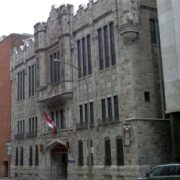
The Canadian Army in Montreal: the Régiment de Maisonneuve
One of six regiments based in Montreal, the Régiment de Maisonneuve is also one of the oldest, with a rich history marked by its involvement in both World Wars, as well as its contribution to daily life in Montreal.
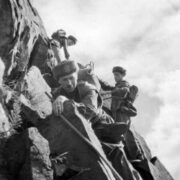
Foreign forces in Italy (part #2): the Polish Army in the West & the French Expeditionary Corps
Apart from the American, British and Canadian armies, many other foreign armies contributed to the Italian campaign. In the second part of our series on foreign forces in Italy, we look at the participation of the Polish Army of the West and the French Expeditionary Corps in Italy.
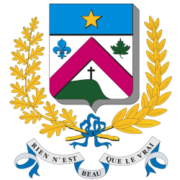
Virtual event: Les régiments montréalais : histoire et patrimoine
In March 2024, the radio program Notre histoire en tête broadcast an episode on the history of the Montreal regiments. We invite you to listen to the episode!
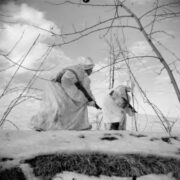
Foreign forces in Italy (part #1): the British Indian Army & the Brazilian Expeditionary Force
The Allied armies mobilized during the Italian campaign (1943-45) were as diverse as they were numerous. Fighting alongside the American, British and Canadian armies were units from four different continents. This article is the first of a two-part series on foreign forces in Italy.
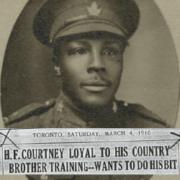
The Courtney Brothers: A Case-Study on Enlistment of Black Soldiers in the First World War
Enlistment in the First World War did not come easy for most Black Canadian soldiers. Acceptance into the military was the responsibility of local recruitment officers, who had the power to deny individuals for service. Considered a “White Man’s War”, recruitment officers often prevented Black individuals from joining the fight overseas because of their skin colour. However, some Black Canadians were able to find officers that would allow them to enlist in battalions alongside white soldiers. Jacob Courtney was one of them.
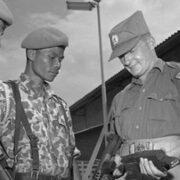
Congo – Canada as a Member of the United Nations
In 1960, the Congo gained its independence, but ethnic and political tensions remained high, prompting the United Nations to intervene. Canada answered the call, deploying troops to stabilize the situation and assist civilians in its first major peacekeeping mission.
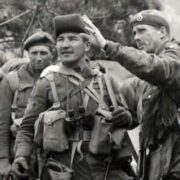
Tommy Prince – Sergeant for the First Special Service Force
Tommy Prince is Canada's most decorated Indigenous Veteran with impressive service in Europe and Asia during the Second World War and the Korean War. Now celebrated across the country, it was a long time before he became widely known.
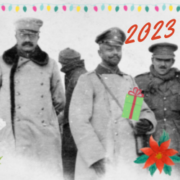
Holiday Reading (2023)
The end of the year means a new vacation! And a new vacation also means a new list of our recommendations for passing the time over the vacations!
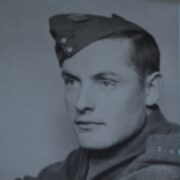
The Story of Gérard Pelletier (1919-1943)
In November 2022, Catherine Dion-Gagnon and her mother Louise travelled to Italy to visit the resting place of their uncle Gérard Pelletier. Enlisted in the Canadian forces at the start of the Second World War, Gérard died tragically shortly before the Battle of Ortona. This article tells his story, and that of his family, as they seek to reconstruct his story.
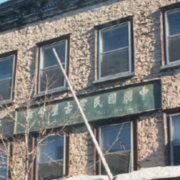
How Canada Helped Finance the Chinese Revolution
At the beginning of the 20th century, China experienced numerous periods of insurrection that led to the advent of the Republic on January 1, 1912. Through the international actions of three major players - Kang Youwei, Liang Qichao and Sun Yat-sen - Canada's Chinese communities saw themselves taking an active part in this revolution, though it was taking place on the other side of the Pacific.
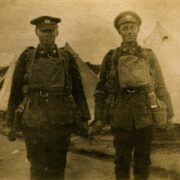
Len and Cub: An Uncovered 2SLGBTQ+ History of the First World War
The early 20th century was a time of severe persecution for 2SLGBTQ+ individuals. Homosexuality wasn’t decriminalized until 1969 and same-sex couples hid their affection in public in fear of being jailed or persecuted. For many individuals, it was difficult to speak openly about their experiences, even later in life. This is especially true when dealing with the experiences of 2SLGBTQ+ individuals who served in the First World War.
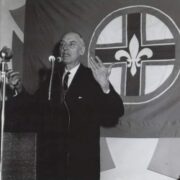
Anti-Semitism in Canada during the Second World War (1933-1945)
On 7 November 2017, the Prime Minister of Canada, Justin Trudeau, made an official apology for the Jewish refugees who had been refused entry to Canada a few months before the outbreak of the Second World War. This article, written by historian Rosalie Racine, looks at the particular Canadian Jewish situation, and the role of anti-Semitism, in the context of the rise of Nazism and during the Second World War.